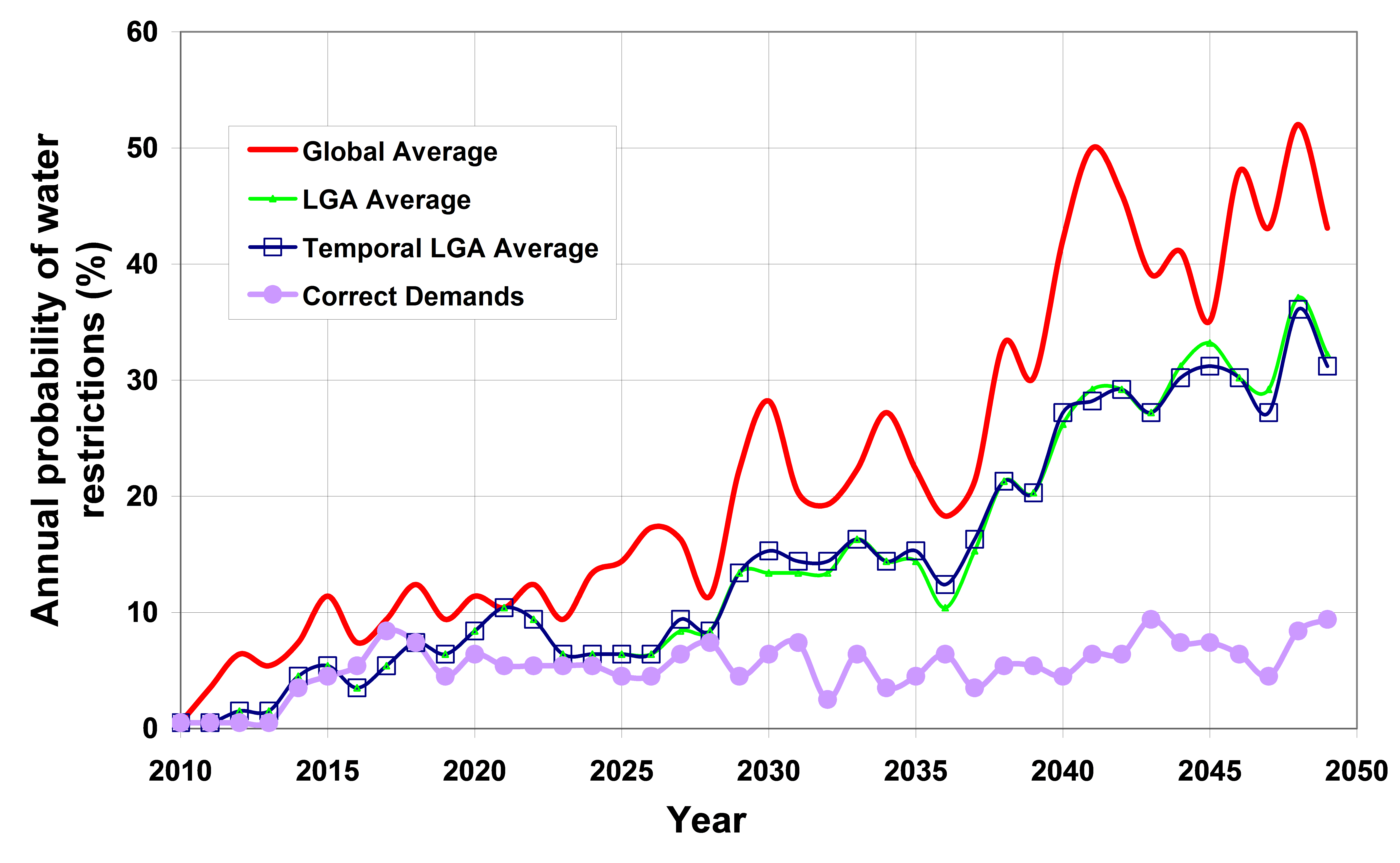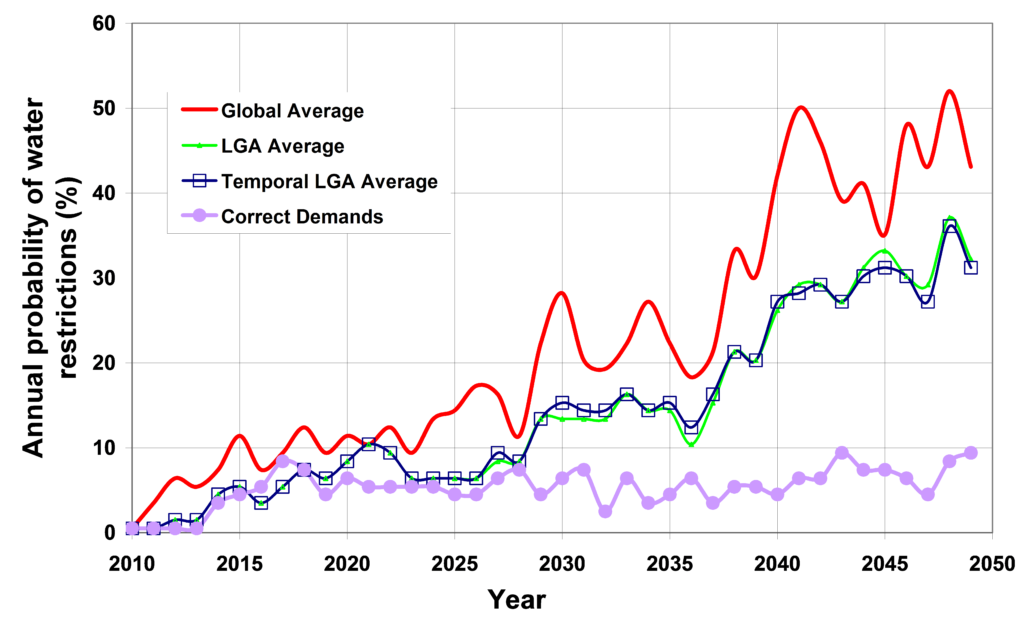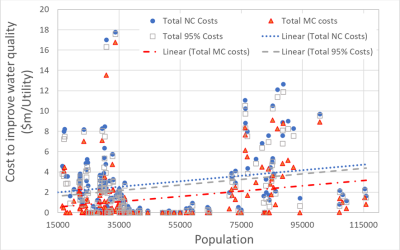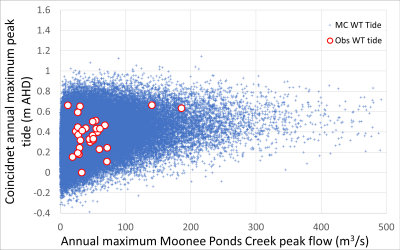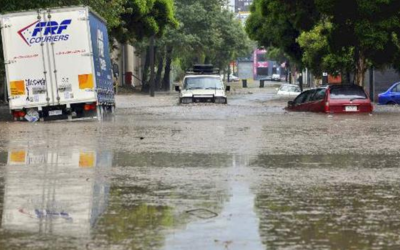Impact of spatial and temporal averages on prediction of water security using systems analysis
Peter J Coombes and Michael Barry
Presentation at the HWRS2016 conference in Queenstown New Zealand at 12 noon on Thursday 1 December 2016
This study has adopted spatially and temporally explicit methods of systems analysis to understand the impacts of global average water demands on the security of water supplies for Greater Sydney and Melbourne. The analysis utilised detailed local inputs throughout the systems, such as demographic profiles, human behaviour and climate dependent water demands, and linked systems that account for water supply, sewerage, stormwater and environmental considerations. The use of global average water demands rather than spatial and temporal detail in analysis of regional water systems generates dramatic reductions in certainty about system behaviour. This leads to uncertainty in understanding of system performance. Use of global averages in simulation of regional water systems is unlikely to describe the spatial and temporal contribution of distributed solutions that generate water resources or reductions in water demands within a metropolis. It is recommended that analysis of regional water resources for cities use spatially and temporally explicit methods of systems analysis to understand the security of urban water supplies. Otherwise, water security and the full potential of alternative water management options may be misunderstood.

